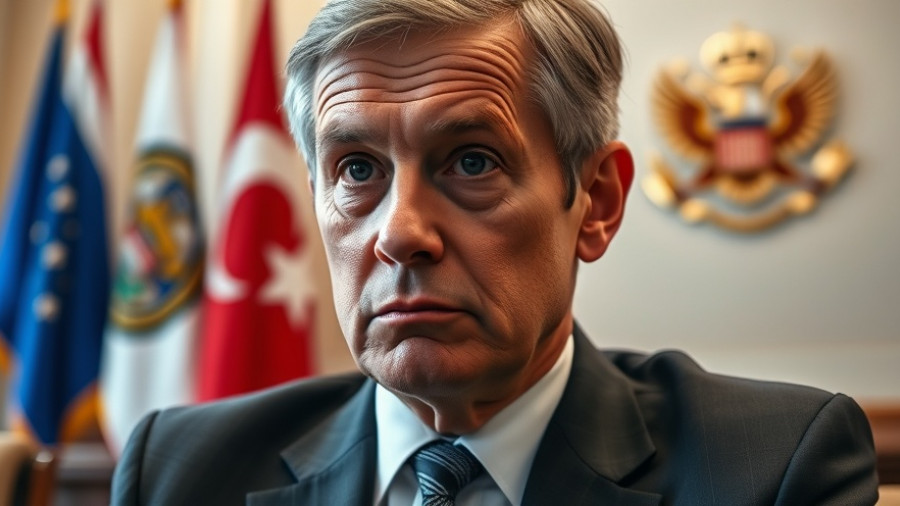
A Disturbing Trend: Social Media and Threats of Violence
The alarming case of Tyler Maxon Avalos, a 30-year-old man from St. Paul, Minnesota, has cast a spotlight on the intersection of social media and threats of violence against public officials. Avalos is accused of posting a TikTok video that offered a $45,000 bounty for the murder of U.S. Attorney General Pam Bondi, stating she was 'wanted dead or alive (preferably dead).' This incident reflects a troubling trend in which social media platforms become venues for expressing violent intent.
How Social Media Amplifies Extremist Behavior
Social media has transformed how individuals disseminate information, but it has also turned into a breeding ground for extremist actions and rhetoric. Avalos's TikTok post included not just the bounty but also an image of Bondi with a sniper scope dot on her forehead, symbolizing a serious threat that goes beyond mere online banter. The post garnered minimal engagement, indicating a niche audience, yet it caught the attention of law enforcement when another user flagged the content. This scenario raises questions about accountability on social media platforms and the effectiveness of monitoring tools in curbing violent expressions.
Understanding Legal Implications: Freedom of Speech vs. True Threats
A key aspect of this case involves the First Amendment and the complexities of distinguishing free speech from threats. The legal process surrounding such cases can be challenging, as Avalos's attorney argues that their client is not guilty of any crime. Lawyers often reference the 'true threat' doctrine, which requires courts to evaluate whether a reasonable person would consider the threats credible. This distinction can complicate prosecutions, especially when it comes to balancing an individual's rights against public safety.
The Background of Tyler Avalos: Patterns of Criminal Activity
Avalos's history further complicates the narrative around his recent actions. With prior convictions for stalking and domestic violence, there is a pattern of concerning behavior that precedes the TikTok incident. Such a criminal record raises questions regarding his mental health and the effectiveness of the judicial system in preventing further threats to public safety. Avalos's past behavior, coupled with his apparent fixation on anti-government sentiments, could suggest deeper ideological beliefs that may influence his actions.
Responding to Political Violence: Broader Implications for Governance
The attack on public officials in this manner signals a growing trend of political violence that has implications for governance and public policy. As our political landscape becomes increasingly polarized, officials like Bondi are often at the forefront of controversies related to immigration and law enforcement. Bondi herself has faced backlash for her policies and actions in addressing crime, indicating a volatile backdrop against which public officials operate. This incident asserts the need for comprehensive strategies addressing political violence while navigating the delicate balance of protecting civil liberties.
Calling for Action: Collective Responsibility
This case serves as a stark reminder of the collective responsibility we share in fostering a civil discourse free from violence. Encouraging respectful conversation and addressing the underlying societal issues that contribute to political animosity is crucial. Law enforcement agencies, tech companies, and community leaders must work together to create safer spaces for dialogue while holding individuals accountable for their actions.
Have a story to share or want to contact us for more details? Drop us an email at team@kansascitythrive.com
 Add Row
Add Row  Add
Add 




Write A Comment